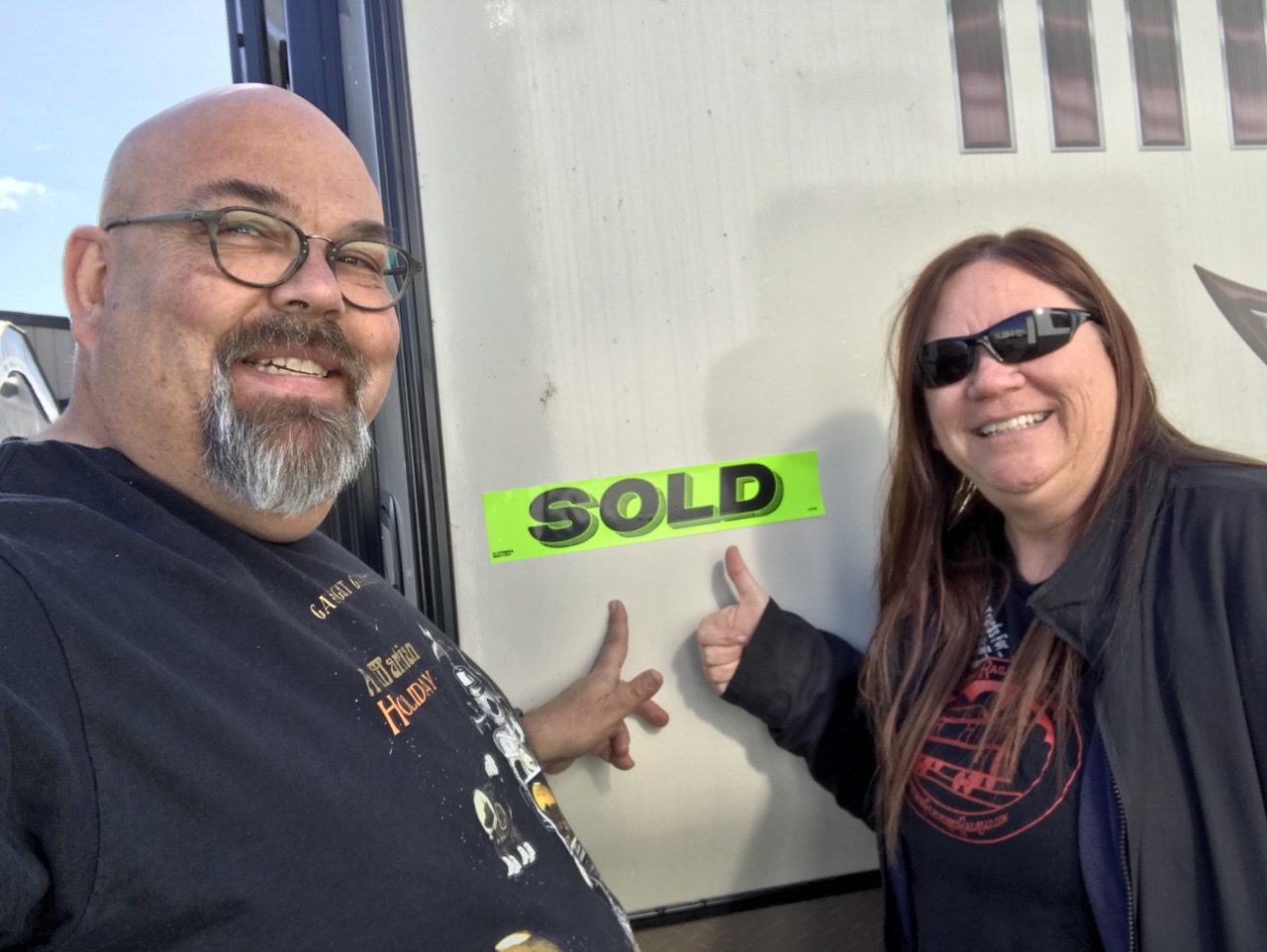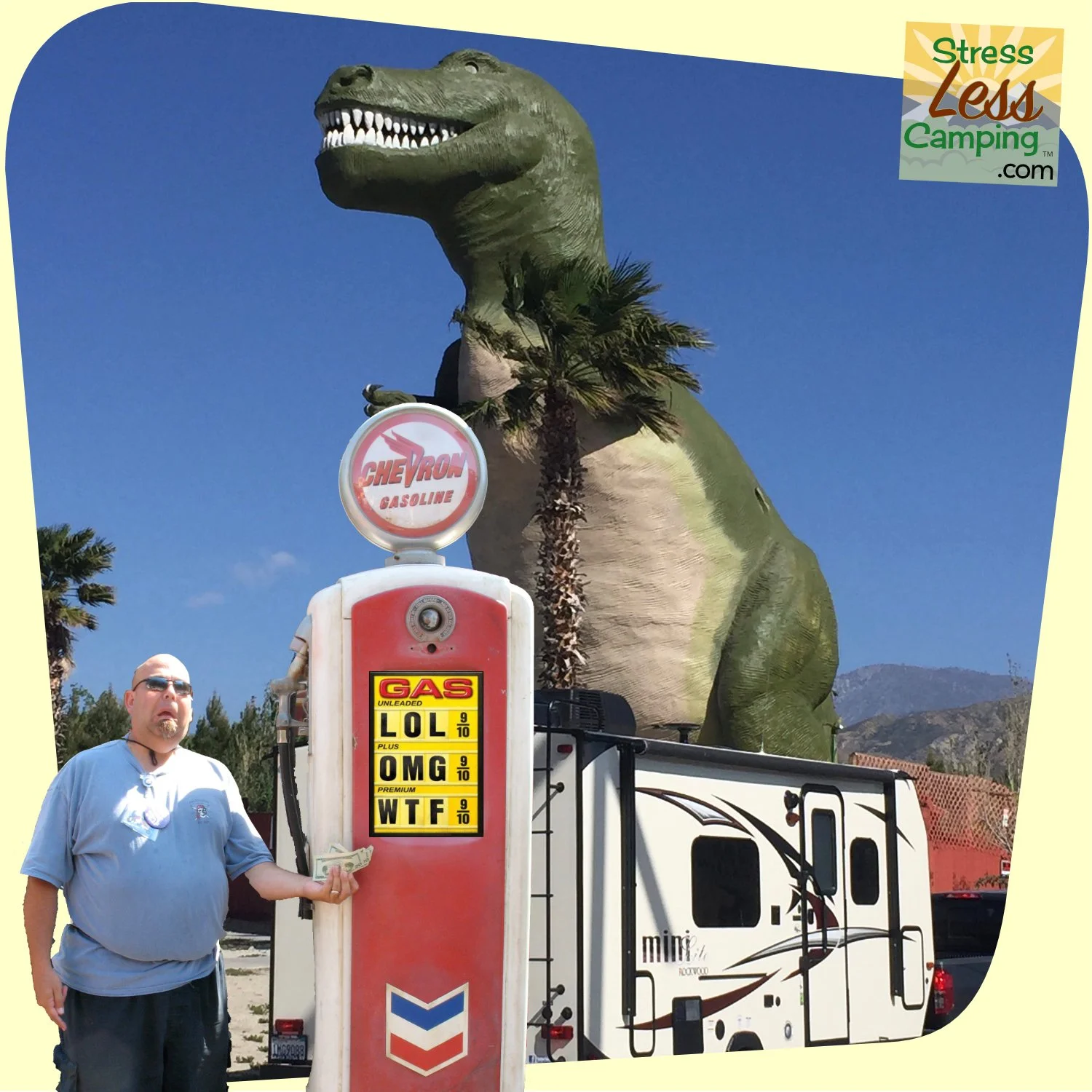Don't be alone even when you're alone
What if you get lost and need assistance? While many RVers hope that their cell phones provide the answer to this, there has been a recent story about a couple whose GPS got them so lost that one them died of dehydration. How do you prevent this from happening to you? And how do you avoid getting lost in the first place if your phone’s GPS isn’t the answer?
Personal GPS locator
One of the options is a personal locator device. These devices use the various satellite constellations to notify emergency services of your whereabouts until help can arrive. Since these are not dependent on the cell system infrastructure they tend to work in more remote areas.
Further, they send an emergency locator signal as well as notifying emergency first-responders of your whereabouts. If you’re conscious enough to simply push a button, these can be life savers. But they aren’t cheap.
Recently I looked at the ACR ResQLink View, a buoyant personal locator beacon that uses GPS and satellite communications technology to notify emergency help of your whereabouts and that you’re lost. What I liked about this item is that it doesn’t require any subscription whatsoever, it floats and the basic functionality is really, really easy to use.
Essentially when you push the button on the front of this gadget, an emergency distress signal is sent to search and rescue forces using the 406MHz band and sends out a homing signal via 121.5MHz. In other words, it calls for help and tells folks where you are.
Coverage with this thing is world-wide using the COSPAS-SARSAT system which is a network (actually a constellation) of satellites that cover the globe.
You can also customize messages to send to specific people in the event that the device is activated should you feel more ambitious about getting to know this device.
There is also a built-in strobe on the device and the company claims that stand-by battery life is five years.
While the system is on a built-in display provides live beacon status and GPS coordinates. Once again, there is no subscription required unlike some of these devices.
While the personal beacon is certainly not a bad idea, it’s also not inexpensive at almost $400. There are other ways you can protect yourself from getting lost.
RV-Safe Navigation
Unfortunately it is believed that the couple that got lost in Nevada were using a common GPS system which doesn’t account for the size of an RV. We have been fans of RVLife’s RV Trip Wizard technology for several years now and use that tool to safely plan our trips.
An RV-specific navigation system keeps you off roads that might not be appropriate for your specific RV. By factoring in information you’ve provided about the length, width and weight of your rig the RV-safe GPS helps you avoid those roads where your RV is not well suited.
RV Trip Wizard takes this information into account when you set the mapping system up on your computer. You can then access trips and plans that you’ve made on your smart phone. In fact, you can even download your routes to your phone so that the mapping function still works even if the cell signal doesn’t.
One of the best things is we have a discount to an RVLife subscription. This is something we absolutely use ourselves and like quite a bit.
Let others know where you are
We’ve shared tips and ideas about having a network of people who are very close to you so you can know that there are people with the information on where you’re going or where you’re supposed to be.
We have an entire section of this website with tips on RV safety including personal safety, connectivity and more. This might be one of the more important sections of this website and we hope you take advantage of it.
In summary
The story of the Indiana couple who got lost in Nevada makes headlines because it’s not very common that this happens. We wish the best to the traveler and their family in this horribly unfortunate situation and hope we can help you stay out of this kind of danger.








